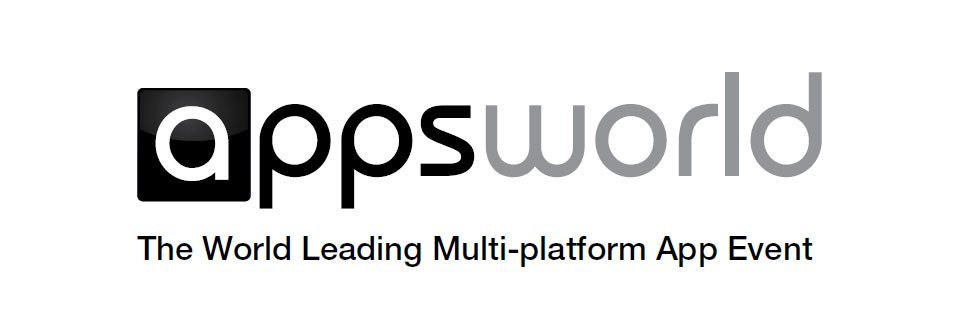My AppsWorld 2014 Digest

Last week I attended AppsWorld 2014 in London, a conference about mobile applications and the mobile industry overall. As I expected, It was a valuable experience, and I thought it would be a good idea to make a summary of what was said and what I learned. This will serve for myself as a way to process all the content and for anyone who is interested to see what happened.
My Point of View
First, I have to say it was quite a big venue with lots of talks and events. If you take a look at the agenda, you'll see there were many presentations, most of them overlapping. So my summary and my remarks will be based on what I had time to see, which is a combination of what happened in Developer Zone, Droid World and Gaming World.
The events I attended were the following:
-
Keynote panel: Creating a successful app business
-
Apps: From inception to expansion (Petter Briffet, Yplan)
-
Panel: Monetisation, discovery, engagement & retention
-
The first 48 hours: How to know now if you've got a hit or are DOA and what to do about it (Jon Walsh and Elisabeth Priestman, Fuse Powered Inc)
-
Panel: Building geo-location into your Android app
-
Panel: The evolving role of the publisher
-
Fast Failure - risk management in a mobile gaming studio (Vladimir Funtikov, Creative Mobile)
-
Mini WIP JAM
-
Android app marketing: Tips for app publishers (Ruth Barnett, SwiftKey)
-
Going Mobile: Challenges for indie game developers
-
Discovering Android design guidelines (Marten Joensson, Google)
-
Panel: Designing your next beautiful Android App
Core Ideas
There were some core ideas repeated throughout multiple talks, which make them even more important. It's true that some of them are quite “obvious” and I've heard them like a thousand times already, but in my opinion that's a sign that they are so important. And should be definitely had into account.
Product Value & Idea Validation
What's the most important of a product? Of course, it is the value. The added value. This was repeated many times in different ways, but it is so hugely important to understand this, that I'm sure many applications live or die by this concept. The added value of a product is what makes it appealing to a user. It is simple, the user will be giving you money (or time, which is more important), so you have to give something back. Value is not features, so defining an application in terms of its features is mostly wrong, and it is something that us developers do a lot. So I am grateful to have heard the importance of added value 10 times this two days, so that next time I start thinking on an application I really see it from the user's point of view.
When in doubt, there is a simple question that tests the validity of an idea: Which problem does it solve? If you really cannot answer that, there is something wrong there. Users will download the application for that sole purpose, so it is important to really solve something well. In order to validate an idea it is necessary to pitch it to real customers, or run a focus group session. That's how you will really know if a product will work or not. Another way of seeing it is having a use case which defines the context of the application. All this is well expressed in the Lean Startup methodology.
There was something interesting mentioned for games, but I think it can be applied for any application. There are three aspects which need to be defined before starting to build anything: Mechanics, Monetization and Fun Factor (or Added Value).
Advertisement & Discovery
I have something to admit, before listening to some of the talks I had quite a bad idea about application advertisement and discovery. My idea was simple: “spend money in advertisements and create visibility in social networks and users will come”. Now after listening some insights, I realize that a bad application can never succeed only with this (although it really makes you wonder what happened with Yo, but I guess there are always exceptions). But also, a good application cannot succeed without it, you really need to be able of communicating effectively and know your audience. So it really has to be a combination of both to have winner.
A good advice was to find out which is your addictive user base niche before spending money in advertisements. And also, advertisements that are detectable as the company having paid are not that good (I actually know for experience with Facebook advertisements). If we have to talk about good methods for advertisement and discovery of apps, there are three:
-
Bloggers & Media: If users see the application for the first time from a trusted source, like a blog or the media in general, they are much more open to give it a try. On this note, a good way of achieving this kind of coverage is to put yourself on the media's shoes, and make it easy for them to want to write about your app (it is noteworthy, appealing, there is plenty of information, etc.).
-
Organic Growth: Friends sharing with friends. If you can make that your application is spreading itself, you're gold. This is how most big applications really grow.
-
AppStore Optimization (ASO): I'm sure most of you are familiar with the term Search Engine Optimization (SEO). Turns out there is a new trend for applications, which is called ASO. It follows the same reasoning as SEO, optimizing the content, description and marketing of your application in order to appear more easily when users search for apps on their own. But I guess it has a different approach given there are many app stores with different mechanisms (Google Play, iTunes, Windows Phone Store, etc.). In particular, there was someone specialized in this, Nick Duddy and his company Miratrix.
It was also noted the power of having a brand supporting the launch of an application, this can be obtained for indie developers with publishers. And depending on the brand, this can make a huge difference at the beginning.
Metrics
And of course, there was a lot of talking about metrics. Most of these are valuable to me as a baseline, because really I didn't have much of an idea about what determined a good or bad app (besides downloads and rating). I have to say that most of them were particular to game applications, so I am not sure they can be applied for all kind of applications. But as I said, it serves as a baseline (better than knowing nothing).
So these are some of the metrics I found useful:
-
Returning Users: The percentage of users that open your application for a second time. Turns out a good value is having 40~45% of returning users. 35% is already pretty bad.
-
Free to Play: In general, having free to play versus paid applications ends up with 10x audience and 3x revenue.
-
Paying Users: The percentage of paying users (how many people using your application actually spend money) doesn't seem to go up with time. So, you shouldn't expect this to improve much without changing anything. Also, applications with a low percentage of paying users seem to do well with advertisements (if placed properly). A good value for this metric is having 2,5% of paying users.
-
Player Value > Player Cost: Player value should be how much your paying users spend divided by the amount of total users. Player cost is the amount you spend on acquiring users divided by how many new users you acquire. So as you may guess, in order to do well, your player value should be bigger than your player cost.
Most of this was explained in the talk by Fuse Powered Inc, which can be found as a blog post here: The First 48 Hours: How to know NOW if you’ve got a hit or are DOA.
An interesting concept that was mentioned was having a “magic number”. It means having a metric that makes the difference for your business, for example in Spotify this metric is the time required to stream a song.
Pitching & Networking
There were also some other things to have into account from a personal point of view. In case of searching for investors, when pitching the idea you should know that you're pitching you and your team as well (that can influence a lot if the investor will go in or not). Also, at the beginning of businesses it is important to get into the community, attending meetups and doing networking to strengthen your contacts network and creating collaboration opportunities.
Conclusions
An that is a summary of what I found more interesting about all the presentations and discussions. It is obvious how important it is to get out of the comfort zone as a developer and start thinking about other important topics: Value, Networking and Visibility.
